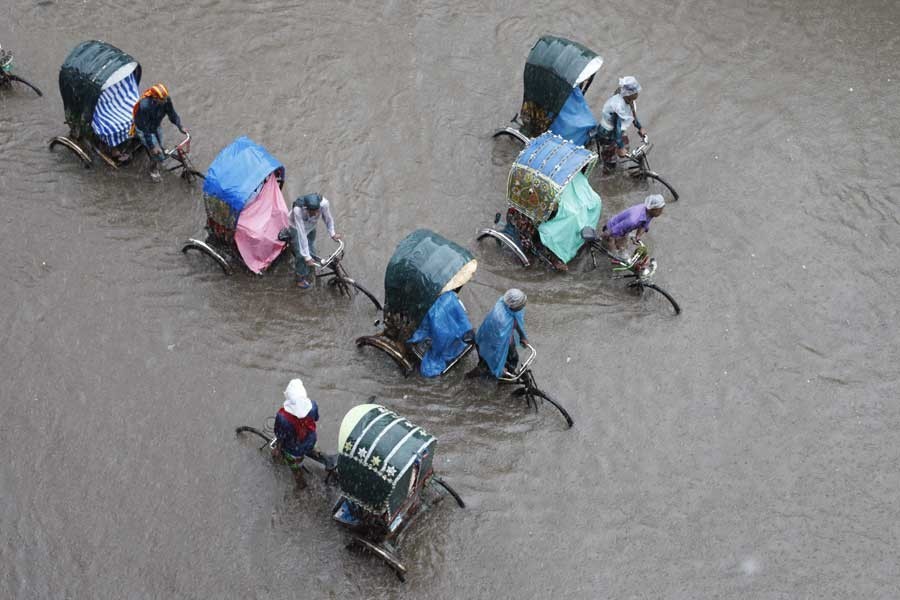Two recent photographs published in the print media speak, apparently, of the worries of the two city corporations about the dreaded water-logging, which may cripple Dhaka once again in less than two months. Already buffeted by the ongoing pandemic, the city residents are also equally worried. For now, it's heartening to see the corporations' activities in advance to check out the conditions of structures that normally help Dhaka remain free of water-logging. Of the two photographs, one shows the repair work on the drainage system in an area in the old town under the supervision of a city corporation. The other photograph has officials of another corporation inspecting the development works at Hatirjheel Lake in Karwanbazar. Renovation works have long been overdue to make the water body fit enough to collect monsoon rain water. Besides, freeing the city's canals from municipal waste and garbage to enable them to carry rain water and keep the surrounding areas free of water-logging is also included in the campaigns.
In a large city like Dhaka, which is now passing through one of the most deadly scourges in its history - the Covid-19, monsoon water-logging is feared to add to its present woes. It is for the alleviation of people's seemingly endless sufferings that the anti-water logging campaigns should be completed successfully. Even during normal times, carrying corona patients to a hospital in rush hours proves an arduous task. Due to traffic gridlock, many terminally ill patients requiring oxygen or emergency ICU admission have to experience a veritable brush with death.
In a city infamous for its monsoon-time ordeals on roads, the level of trouble and inconvenience caused by water-logging to the corona patients and their attendants is understood. Rain water remaining stagnant on even major roads for a whole day is a common sight in the capital. Large volumes of funds have been spent to repair the roads and the nearby areas; and tall promises have continued to be made by successive governments. But all these exercises eventually fell flat. Except a few, the roads in general remained vulnerable to the impacts of water-logging. Citizens' sufferings continue every year with the return of monsoon. The most adverse aspect of the feared water-logging that warrants wide focus is the time wasting, which is presently a critical factor. Against the backdrop of the country's history, Bangladesh has not passed through such a fraught time related to public health in the recent period.
Dhaka as a capital has long been growing in a frenzied pace being, verily, unaware of its many limitations. The shortcomings relate mainly to infrastructure. It's commendable that the two city corporations have started work on the prevalent adversities in order to face up to Dhaka's urban ills. People look to a future when an urban set-up in its totality is in place. In that cityscape the menace of water-logging may have a fading, and, later, invisible place. Foot-dragging, shortage of funds should not in any way dampen remedial efforts. But it's undeniable the Dhaka residents nowadays do not have to see the terribly waterlogged roads of the 1990s. The menace continues fading out.


